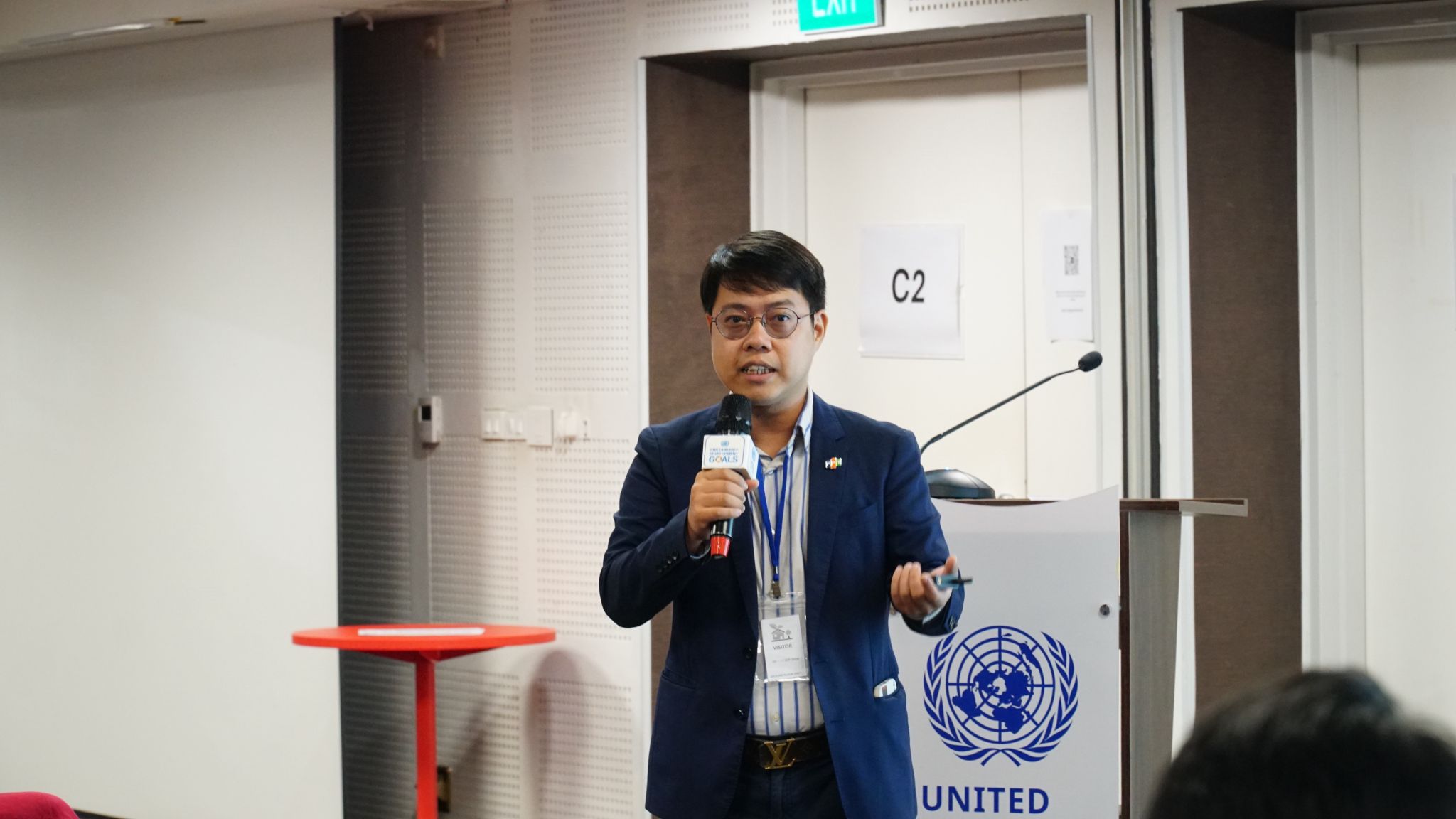In the aftermath of catastrophic super-typhoon YAGI, many enterprise leaders in Hanoi gathered in the United Nations Building in the event, organized by IPS (Institute of Policy Studies) and UNDP (United Nations Development Programs). Chief AI Scientist of AAI Lab of Verysell Group, Dr. Dao Huu Hung was honored to be invited as a speaker, addressing a keynote: “The roles of enterprise in Vietnam National AI Strategy.”
Three Key Shifts to Propel as Leaders in the field of AI
First, AI is not the opportunity but AI is the necessary and indispensable element in our lives. The resurgence of AI has been for 14 years. The advent of ChatGPT has sparked great interests in Generative AI because of its great power in human language understanding. At the beginning of deep learning era, AI was described as the cream layer decorated on the top of the cakes, making the cakes more attractive. It likes the common trend in the enterprise world, products and services being widely promoted as AI applications to attract more consumers and branding, etc., even not using or just using a little bit of modern AI technology. In the past, we came to persuade the enterprises to adopt AI. But now, the enterprises come to use to listen how to transform their business by AI technology. It is simply because AI becomes an essential part of human lives and business operations.
Second, Vietnam’s AI development strategy is to venture into the deep sea. The cradle of global AI is still the United States. Our neighboring country, China, is where AI applications are most vibrant. If you’ve been to China recently, you can see how pervasive AI is. We can find AI everywhere on the streets, in households, and in offices. So, venturing into the deep sea means we must expand our relationships and cooperate with renowned AI research centers and technology companies.
Finally, The days of businesses dabbling in small-scale AI projects are over. Companies need a comprehensive AI strategy to stay competitive. Integrating AI into their IT infrastructure is essential for digital transformation.
While many fear AI will replace human workers, the reality is more nuanced. AI can perform many tasks, but it lacks the creativity and critical thinking of humans. In the future, AI might become as intelligent as humans, but for now, it’s complementing our abilities, not replacing them. Just as previous technological revolutions didn’t lead to mass unemployment, the AI revolution will create new jobs. As AI becomes more prevalent, the nature of work will change, but there will be opportunities for those who are willing to adapt and learn new skills.


